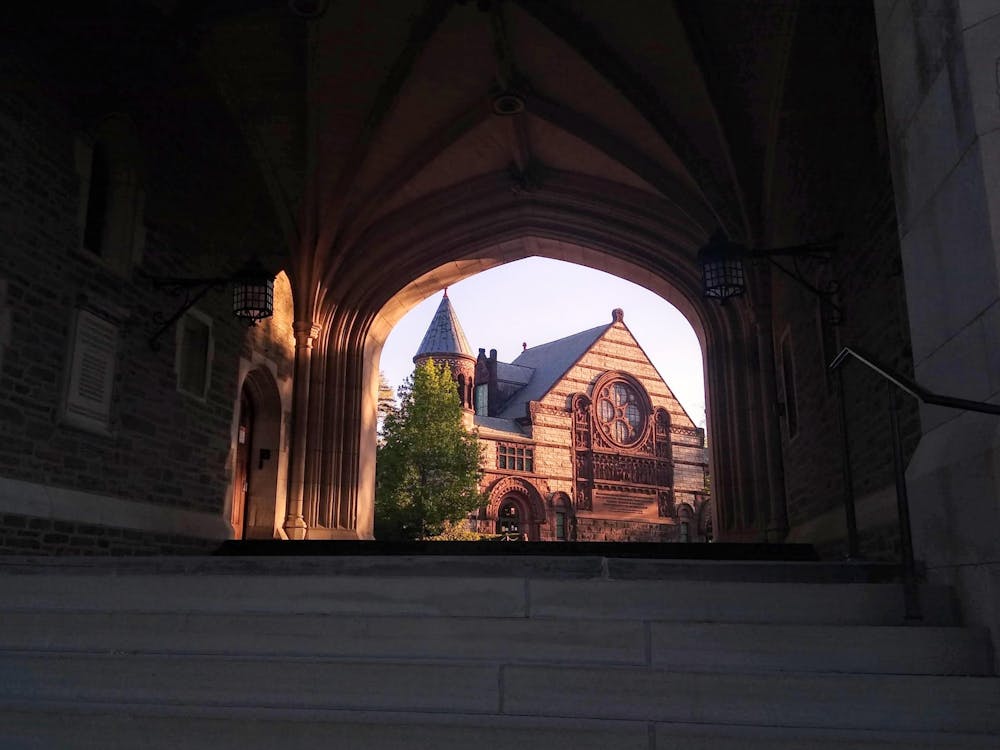A recent column in The New York Times argues that the structure of a secluded college campus is responsible for the disconnect between the student body and broader society. The author argues that college campuses that are isolated from their surrounding communities are problematic, claiming that they shield students from reality, create a warped perception of obligation for the issues that face these communities, and are an echo chamber of ideas.
Yet there are so many positives a campus can accomplish; a system that allows students to develop life skills in a safe environment is beneficial for both students and the broader community.
The campus experience offers benefits that the Times article did not consider. The initial rationale behind the locale of some campuses, like Princeton’s, was that a secluded environment separated from family members, external obligations, and a large, busy city environment allowed students to focus on their academics. Even if the initial rationale does not remain entirely true, there are still many benefits that students can gain from living in a residential campus community.
College campuses don’t have an “infantilizing” effect on the student body, but rather serve as a space where students can grow and learn without experiencing the permanent and often extreme consequences of making mistakes in the “real world.” Although many elite institutions in the U.S. and abroad have historically been situated to provide a space free of distractions for children of the wealthy, this no longer should be the role of the campus. Rather, the goal of a campus should be to foster a welcoming community that promotes equity among peers, creates room to make mistakes and grow from them, and ensures space for the student voice. Overall, this will create a campus environment that allows students to focus on community service.
Though the concept of the “campus” leads to a degree of isolation from the surrounding community, it also provides a multitude of benefits to students that can result in lasting change. One of the biggest shifts for many people is the process of leaving home or their families for the first time. Living on your own is exciting and liberating, but also an incredibly stressful and challenging transition. Moving to a shared campus and living among others undergoing the same experience is comforting, and is a source of peer support during a time of extreme change. It means knowing that you are not alone, that your challenges are similar to the people down the hall, and that many people will be able to empathize with you.
Campuses also provide a sense of equality among students from all different socioeconomic backgrounds; as the University continues to develop its aid policy, ensuring that student accommodation is similar means that the campus experience can be for everyone. Just as all students are on the Unlimited Meal Plan for the first two years, having a few years of uniform housing ensures more equitable access to necessary resources.
Learning occurs both inside and outside of the classroom. A lot comes through making mistakes. When students inevitably make a mistake and find themselves in compromising situations, there is a degree of increased safety knowing that most situations will be dealt with internally. Trainings offered by the Sexual Harassment/Assault Advising, Resources and Education (SHARE) office or the Office for Diversity and Inclusion aims to prepare every student with the tools to navigate difficult situations surrounding inclusion and interpersonal relationships. Beyond that, many students have gone through additional training, which means that disputes and issues can often be addressed by peers.
The beauty of living in a small town is that we have a voice in the community and the power to effectuate real change. There are certainly downsides to the college campus; as the Times article mentions, activism can certainly get detached from real-world issues. But rather than trying to deconstruct this community, we would be much better off shifting the entire community into a more service-oriented setup. Even if students are primarily living on campus, as a community there must be a greater drive to contribute positively. Shifts could be in the ways that the Programs for Community Engaged Scholarship (ProCES) courses work, Community Action is run, or the implementation of a distribution requirement related to service.

Once students leave Princeton, they will go all over the place. But developing interpersonal skills, good habits, and problem-solving methods in a low-stakes environment better prepares students for life beyond Princeton. The University and campus culture certainly need to shift in some ways: a greater dedication to the community beyond campus, more productive activism, and healthier mindsets should be the goal. Students do need to take to heart the responsibility of taking care of themselves and their peers, but many of these changes can be made from within.
Mohan Setty-Charity is a junior from Amherst, Mass., concentrating in economics. He can be reached at ms99@princeton.edu.









